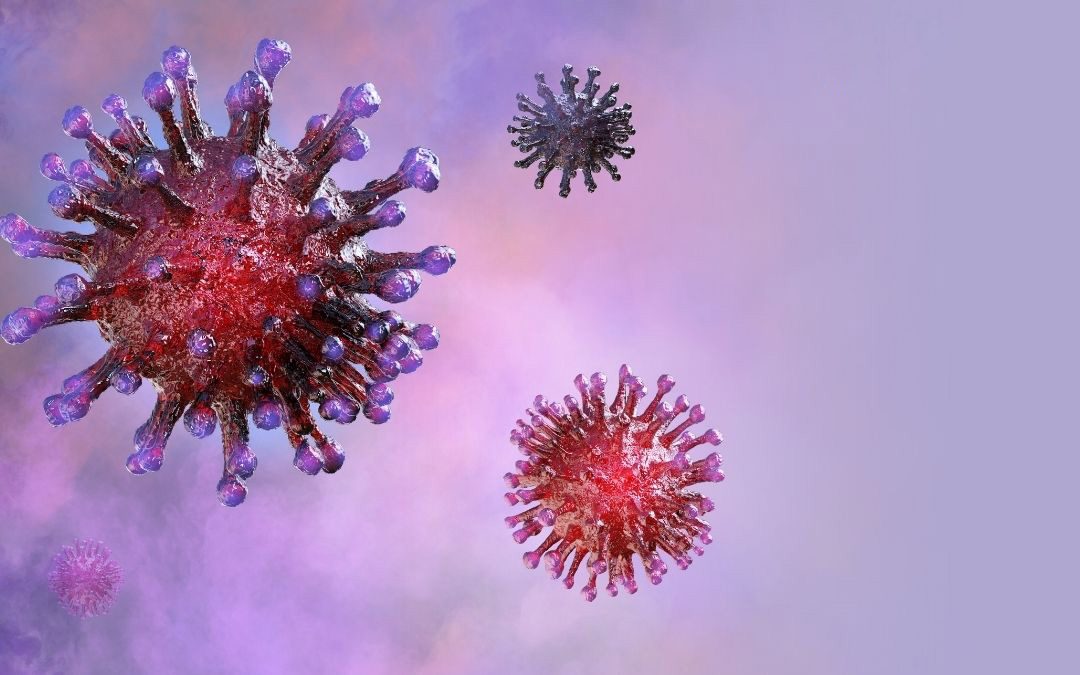In recent years, scientists and doctors have been exploring and studying the discovery of lesions in locations on the body where the chance of UV exposure from the sun is less likely to develop a cancer. This perceived link between viruses and skin cancer has been the topic of much discussion in the medical community.
What this means is that UV exposure alone can’t be blamed for every case of skin cancer, and the disease can perhaps be influenced by other factors too. Incidentally, there is a growing body of evidence on the relationship between human papillomavirus (HPV), and squamous cell carcinoma (SCC) of the skin as well as cutaneous squamous cell carcinoma (cSCC).
The term “virus,” the midst of a global pandemic, is loaded with severe connotation. Historically, we linked the term “virus” with temporary illnesses like the common cold or 24 hour flu, both of which require relatively simple solutions. However, some viruses can also cause cancer. According to a recent study, hepatitis B virus annually results in over 350,000 liver cancer cases across the globe. These statistics can be staggering and quite frightening.
HPV is generally associated with sexually transmitted diseases (STDs) that can lead to genital warts and the development of cancerous cells in the anus, oral cavity, or cervix. Despite the existence of the. HPV vaccine, which is aimed to reduce the risk of HPV-associated cancer, HPV leads to approximately 700,000 cases of cancer worldwide every year. These numbers don’t even reflect the skin cancer numbers. However, recent research points toward a possible link between cSCC and high-risk strains of human papillomavirus.
As we know, correlation does not imply causation. In other words, although there is enough evidence to associate cSCC with HPV, it is still unknown if HPV directly causes cutaneous squamous cell carcinoma.
How Does a Virus Cause Cancer?
Viruses cause cells to grow and spread abnormally. They can also deploy processes that can modify or bypass the immune system to prevent the destruction of abnormal cells. In healthy individuals, the surveillance mechanism of the immune system continuously identifies abnormal cells and destroys them before they turn cancerous.
To help understand this a bit better, it’s helpful to use HPV as an example. A healthy immune system is capable of removing HPV out of your body. However, the virus can manage to remain present in weakened immune systems. It can reside in epithelial cells – the cells that line the surface of our body – without any warning of its presence.
Scientists believe that viruses can play the role of co-carcinogens in the development of lesions – groups of cancerous cells in the oral cavity, cervix, and even over the skin. It is to be noted that HPV doesn’t only get transmitted during physical intercourse, even despite being classified as a sexually transmitted pathogen.
So, how does it spread? HPV transmits through breaks in the skin. The friction that occurs during sexual intercourse can result in breaks in the skin. These breaks can become the entry points for HPV, which can cause health problems like genital warts. Likewise, if there is a lesion on the hand, it is likely that you had a cut at the lesion site and the virus might have entered through it.
What You Should Know About HPV & Skin Cancer
So what does this mean for patients? Particularly the ones who are at high risk of developing cSCCs. A strong immune system is a critical line of defence against all illnesses, including cancer. For this reason, a completely separate field of oncology, known as immunotherapy has been developed that specifically focuses on boosting your immune system to fight off cancer. This means, if you are immunosuppressed due to certain medical conditions or medications, you should inform your skin cancer physician.
No matter how you have been exposed to HPV, it is good to discuss your diagnosis with your dermatologist. Whether you’ve had an unusual Pap smear, genital warts, or a blood exam or biopsy that showed you positive for one or more strains of HPV, make it a point to bring it up at your next appointment.
While there are no specific guidelines on how a positive HPV report will affect skin cancer surveillance, it’s never a bad idea to talk about possible options with your skin cancer physician. You should be sure to maintain consistent doctor visits as well as be aware of what you need to monitor, such as marks that appear superficially harmless.
At the same time, it is important to consider other well-known risk factors for skin cancer, such as exposure to UV rays.
If you have been exposed to HPV and worry that the link between this virus and cSCC could lead to a possible skin cancer diagnosis, it’s important to stay informed and aware that the science on this is new. Some studies have suggested a link between HPV and skin cancer; Others have been less conclusive.
Interestingly (and positively), a recent study has described that immunity to some of the high-risk HPV strains can actually offer protection against skin cancer. This means that developing a vaccine could not only enhance antiviral immunity in the skin, but can possibly aid in preventing skin cancers. professionals say that this entails the need to learn more about the particular strains of HPV that could have a potential link with skin cancer.
At present, there are over 200 strains of HPV and scientists are currently testing only the high-risk ones. In relation to skin cancer, there is much more to know about HPV strains. There are many questions yet to be addressed: What is clinically crucial? What part of the skin should be the primary focus? What HPV strains do we need to assess? When should this testing be done?
While the issues are somewhat complicated, scientists are using the advancements in the fields of medical science and technology to their advantage and are working hard to find the answers to these important questions.
Other Viruses Linked to Skin Cancer
Besides HPV, there are some other viruses that are thought be associated with the development of skin cancer.
Merkel Cell Carcinoma
Although rare, Merkel cell carcinoma (MCC) is a dangerous kind of cancer. Nearly 3,000 cases of MCC are diagnosed annually in the US alone, and nearly 80% of these cases are caused by a polyomavirus. Without showing any symptoms or signs of its presence, this virus lives in the human skin. And, in most people, it cannot even develop skin cancer.
However, MCC is extremely rare. This explains why scientists are still not sure why and how it can lead to skin cancer in that small percentage of at-risk individuals. Besides the virus, prolonged exposure to UV radiation and immunosuppression may be other causative factors of this type of cancer. MCC is 3-5 times more life-threatening than melanoma, but it can be treated successfully with an early diagnosis.
Kaposi’s Sarcoma
Studies have shown that human herpes virus type 8 is responsible for approximately 42,000 cases of Kaposi’s Sarcoma every year globally. While most people infected by this virus never develop this condition, it is quite common in individuals with a compromised immune system due to medications after an organ transplant, or because of HIV/AIDS.
While scientists believe that viruses can possibly lead to some types of skin cancer, it is important to remind you that exposure to UV radiation from the sun and artificial sources remains the major reason behind virtually all types of skin cancer.
It is best practice to protect your skin from the harmful UV radiation. Simple measures like seeking shade when outside, wearing UV-protective clothing, sunglasses, and a wide-brimmed hat can significantly reduce your exposure to the sun. professionals also recommend monthly skin self-exams in addition to yearly cancer screenings. These measures provide a surefire way to lower your risk of developing skin cancer.




